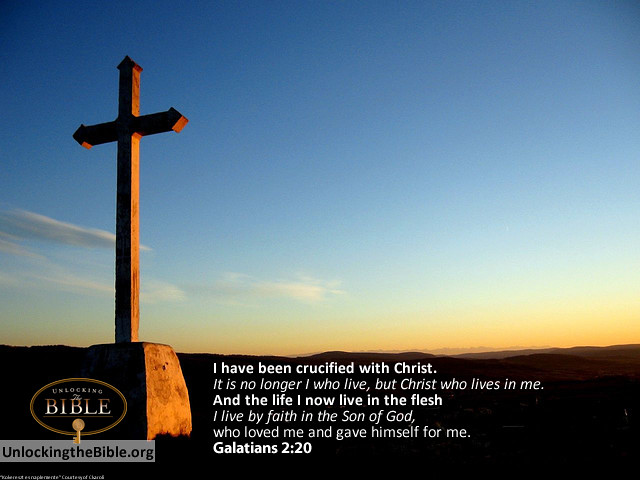THE SEED
“I have been crucified with Christ. It is no longer I who live, but Christ who lives in me. And the life I now live in the flesh I live by faith in the Son of God, who loved me and gave himself for me.” Galatians 2:20 ESV
The process of becoming born again is an experience that should be close to the heart of a new believer. This is especially true if you were not born as a Christian and neither went to church growing up. One thing is certain, once you accept Jesus and confess and forsake your sins, changes should come from within you and manifesting physically. Your new birth radiates from inside to outside. This is the point whereby when you make certain decisions about your lifestyle, friendship etc, you will allow Jesus to have the final say. However, if you only profess Jesus as your Saviour i.e. He is a person who saved you, yet you did not make him your Lord; you are short-changing yourself. Being the Lord of your life means Jesus will be in total control of your life. You will hear from Him concerning those decisions that are important to your life. Where He asks you to go, you will go there. The key verse today reminds that you no longer live for your own selfish gain but rather live a life that portrays Christ, who lives in you. Accepting His salvation means accepting His Lordship to rule over you. The deliverance, the blessing and support that are attached to your salvation are numerous, the key to these are accepting Jesus as the Lord and Saviour. Once you surrender all, then you let Him take the lead. The ultimate is total obedience to His words.
BIBLE READING: Philippians 2:5–11
PRAYER: Heavenly Father, please help me to trust your providence and faithfulness to work mightily through me.
JESU OLUWA ATI OLUGBALA WA
IRUGBIN NAA
“A ti kàn mi mọ agbelebu pẹlu Kristi. Kì í ṣe èmi ni ó wà láàyè mo, bíkòṣe Kristi tí ń gbé inú mi. Ati igbesi-aye ti mo n gbe nisinsinyi ninu ẹran-ara ni mo n gbe nipa igbagbọ ninu Ọmọkunrin Ọlọrun, ẹniti o fẹ mi, ti o si fi ara re fun mi.” Gálátíà 2:20
Ilana di di atunbi jẹ iriri ti o yẹ ki o sunmọ ọkan onigbagbo titun.Eyi jẹ otitọ ti a ko ba bi o gege bi onigbagbọ ti Iwo ko si lọ si ile ijọsin bi o ti n dagba soke. Ohun kan daju, ni kete ti o ba gba Jesu ti o jẹwọ, ti o si kọ awọn ẹṣẹ rẹ silẹ, iyipada yẹ ki o wa lati inu rẹ ki o si farahan ni ti ara. Ibí tuntun rẹ n tan lati inu si ita. Eyi ni ikori ti Iwo yóò ti maa ṣe awọn ipinnu nipa awọn igbesi aye rẹ,awọn ọrẹ, ati bẹbẹ lọ, iwọ yoo gba Jesu laaye lati je Alase lori re. Sibẹsibẹ, ti o ba jẹwọ Jesu nikan gege bi Olugbala, O jẹ eni ti o gba ọ là, ṣugbọn iwọ ko fi i ṣe Oluwa rẹ; Iwo ko je olóòóto si ara rẹ. Jije Oluwa ti aye re tumo si Jesu yoo sakoso gbogbo aye re. Iwọ yoo gbọ lati ọdọ Rẹ nipa awọn ipinnu wọnni ti o ṣe pataki si igbesi aye rẹ. Nibikibi ti o ba Dari re si ni iwọ yoo lọ. Ẹsẹ ayoka Oro Ọlorun oni ran wa leti pe o ko gbe laaye fun ere ti ara rẹ mọ ṣugbọn Iwo yo gbe igbesi aye kan ti o ṣe afihan Kristi, ẹniti o ngbe inu rẹ. Gbigba igbala Re tumo si gbigba Oluwa Re lati joba lori rẹ. Igbala, ibukun ati atilẹyin ti o so mọ igbala rẹ jẹ ọpọlọpọ, kokoro si awọn nkan wọnyi ni gbigba Jesu gẹgẹbi Oluwa ati Olugbala. Ni kete ti o ba fi gbogbo rẹ silẹ, lẹhinna Iwo yio je ko je oludari re. Opin gbogbo re ni sise igboran lapapọ si awọn ọrọ Rẹ.
BIBELI KIKA: Fílípì 2:5-11
ADURA: Baba Ọrun, jọwọ ran mi lọwọ lati gbẹkẹle ipese ati otitọ rẹ lati ṣiṣẹ takuntakun nipasẹ mi.
